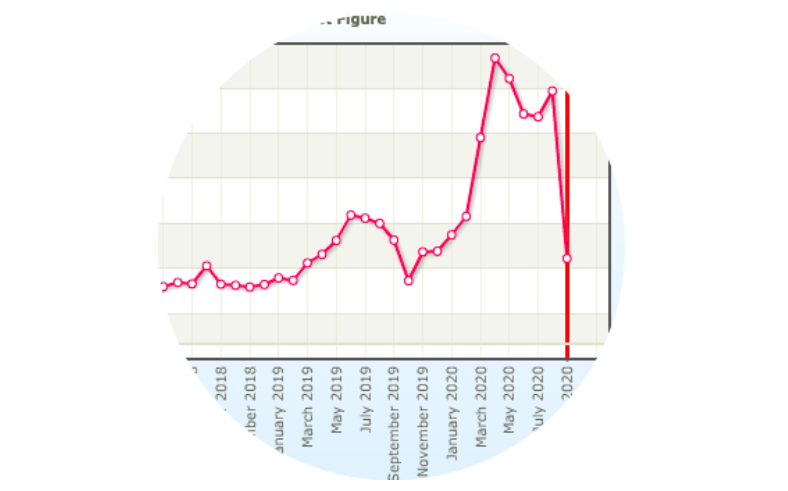Sales forecasting
and inventory optimization
Become a retail mastermind you always wanted to be.
Become a retail mastermind you always wanted to be.
What really happened in Corona time (COVID 19) with your sales and afterward in inventory management and replenishment is the critical knowledge for your business’s future?
“Fortune favors the prepared mind. (Louis Pasteur)”
There are a few types of sales reactions during Corona (COVID 19) times. The one where sales significantly drop and the opposite, where sales increased considerably.
Sales:
Inventory management:
Examples of sales categories: toys and games, hardware, home & garden, etc.
This type was about a short term reaction in your customer demand. Due to fear from new situations, panic, and different media information, your customers started to buy more quantities than ever before or more than a standard trend in your sales. See the image below. This situation was more frequent in e-commerce than in brick and mortar businesses.
What happened with your inventory was probably that you had to faced stockouts due to higher demand at the first time of increase than you expected. After this first hit, you start to react properly with higher purchase orders, and you probably begin to purchase more frequently. After a few months, everything is on the same track as before COVID 19.
Sales:
Inventory management:
Examples of sales categories: disinfectants, fitness food, etc.
The second type is really interesting because this means real change in your customers’ behavior and demand. After COVID 19 hit you, there was a relatively short period of sales increasing because of the new situation. But what is more interesting, the demand stays at a new level. So you hit another level of your business, and you are a lucky guy. Now you have to deal with a new level of logistics, purchase, distribution, etc.
Sales:
Inventory management:
Examples: bridal wear, swimwear, etc.
The third type is about the balance in the market. There are always winners and losers. During COVID 19, your sales decline by tens of %. After a few months, everything is the same as before.
Sales:
Inventory management:
Examples: luggage, briefcases, etc.
First, Inventoro has a very special sensitivity for the identification of changes in sales. Inventoro is ready to identify decline or incline in customer’s demand within just a few days. Afterward, we recalculate the proper sales forecast, and then we can automatically calculate new optimum for purchase orders.
Inventory management is always about as quick reaction to what is just happening in the sales as possible. We can teach you how to use future sales forecasts instead of historical sales.
Inventory management is a complex discipline. You have to calculate several key attributes like safety stocks, minimum and maximum inventory, reorder points, optimum service level, etc. Then you will be ready for anything happening in the market.
If you want to eliminate business risk due to too much inventory, you should try our Inventory optimization and reduction.
Become a retail mastermind you always wanted to be.
What you need to calculate optimum purchase orders is proper inventory levels for every item within your portfolio. Inventory accuracy is the source of every discrepancy between the physical and electronic evidence of your inventory.
This situation can be different than any other in history. You can take your phone and ask the biggest suppliers about their delivery performance in the next few months.
You should refresh variables like lead times (time between placing a purchase order and real delivery), the variability of lead time (it is an option for better results), order period (the time period in the future which will be covered by purchase order), MOQ (Minimum Order Quantity), etc.
Please talk with your suppliers.
It’s said that what we have as people and computers don’t are experience and intuition. So you should use your intuition and make it real in the shape of a real sales plan adjustment.
No matter if you are using just some excel table.
In these times, you have to decide what your inventory strategy will be. You should decide what service level you will keep for the best sales categories in your portfolio. The same, you have to decide on worse selling categories. Is the proper level 99%, which means that you will satisfy almost every customer? Or just 95%, and you will be ok with 5% of unsatisfied customers. Your company has to know about these decisions.
So is your Inventory management ready for the next COVID 19 wave?
Become a retail mastermind you always wanted to be.
